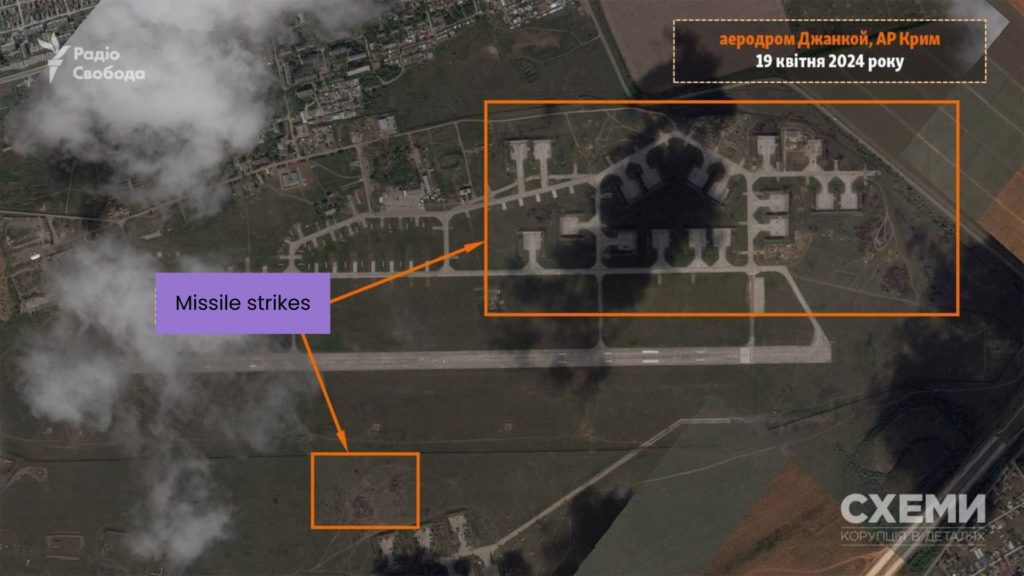First satellite images capture Ukraine’s strike on Russian-occupied Dzhankoi airbase
The images reveal damage near the Russian ammunition depot and air defense systems.


RFL/RE’s investigative project Skhemy (Schemes) obtained satellite images from Planet Labs showing the aftermath of Ukrainian strikes on the military airfield in Russian-occupied Dzhankoi, Crimea. The images reveal damage near the Russian ammunition depot and air defense systems.
“In the images, we see precision strikes on air defense assets that put them out of commission, as well as a hit on the Russian ammunition depot. It’s worth noting that after the strikes, most of the aircraft were relocated,” explained aviation expert Anatolii Khrapchynskyi in a comment to Skhemy.
He added that, judging by the satellite imagery, systems involved in radar and air defense operations were also hit.
The strikes occurred the night of 17 April in the area of the military airfield in the Russian occupied city of Dzhankoi, Crimea. Ukraine’s military reported delivering missile strikes on “designated Russian military targets” at the airfield.
Ukraine’s intelligence listed damaged Russian assets as four S-400 launchers, three radar stations, an air defense control point and a Fundament-M surveillance system.
The airfield hosts the 39th Helicopter Regiment of Russia’s 27th Aviation Division and serves as a major transportation hub for moving Russian equipment, ammunition and personnel in occupied Crimea.
Read more:
- Ukraine destroys Russia’s Dzhankoi helicopter base air defenses, enabling further deep strikes on occupied Crimea
- Dzhankoi airfield in occupied Crimea targeted in strikes
- The Guardian: Ukraine plans to destroy Kerch bridge by June
- Sources say high-ranking Russian officers hit by strike in occupied Crimea
- Ukrainian missile attack sparks fire at warehouse in occupied Crimea
- Blasts heard in Dzhankoi, occupied Crimea, in alleged Ukrainian drone attack on railway hub (updated)
You could close this page. Or you could join our community and help us produce more materials like this.
We keep our reporting open and accessible to everyone because we believe in the power of free information. This is why our small, cost-effective team depends on the support of readers like you to bring deliver timely news, quality analysis, and on-the-ground reports about Russia's war against Ukraine and Ukraine's struggle to build a democratic society.
A little bit goes a long way: for as little as the cost of one cup of coffee a month, you can help build bridges between Ukraine and the rest of the world, plus become a co-creator and vote for topics we should cover next. Become a patron or see other ways to support.



